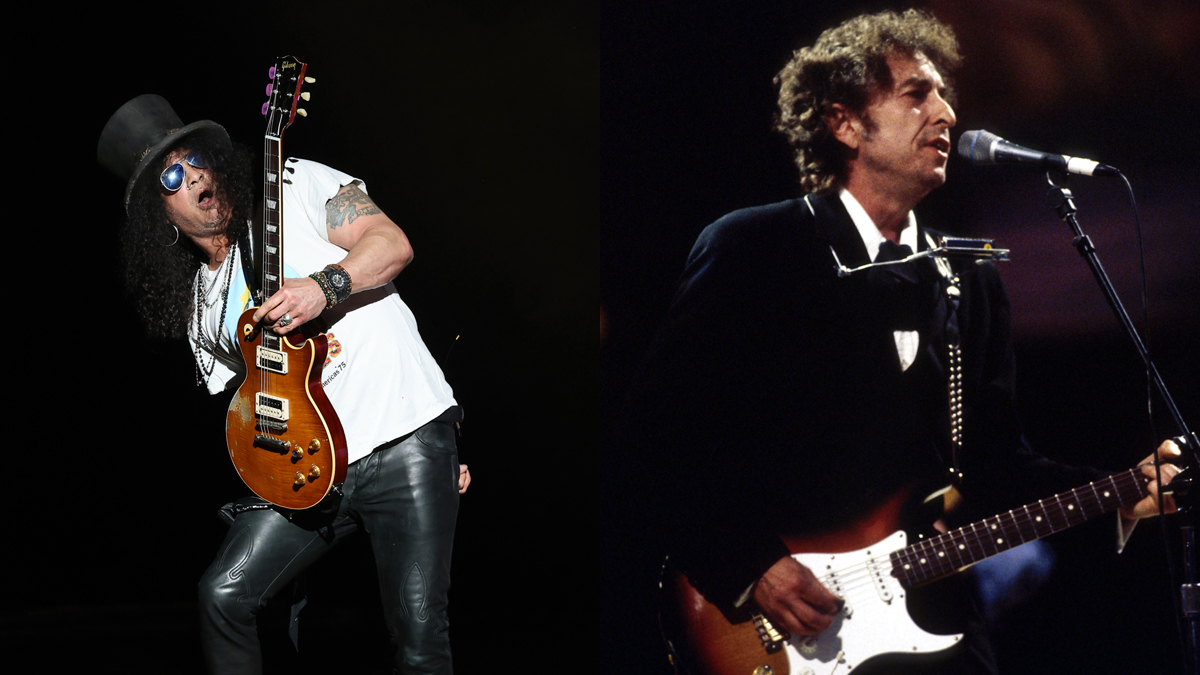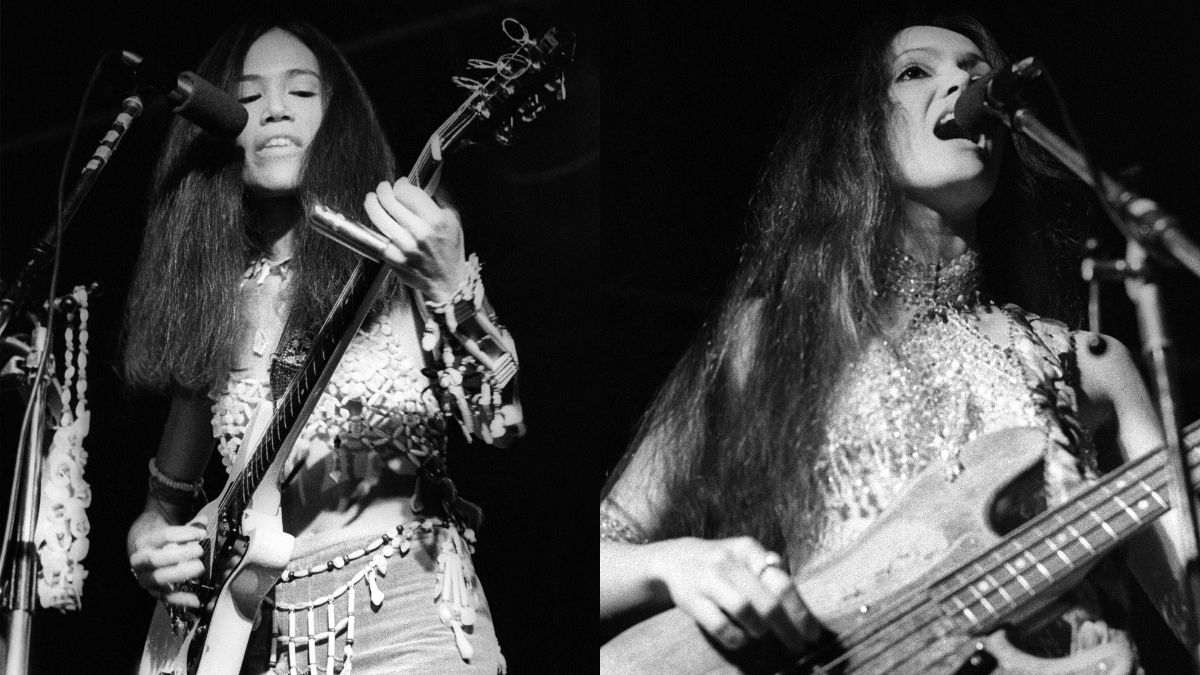
All the latest guitar news, interviews, lessons, reviews, deals and more, direct to your inbox!
You are now subscribed
Your newsletter sign-up was successful
Thanks to his illustrious tenure with Guns N’ Roses, a prolific solo career spanning five studio albums and a historic relationship with the Gibson Les Paul, Slash has become something of an authority figure when it comes to playing lead guitar, to put it mildly.
However, despite amassing a reputation as one of the rock world’s standout soloists, it turns out the top hat-toting electric guitar icon can’t quite impress everyone with his playing.
According to Slash himself, he once wrote a guitar solo for none other than folk legend Bob Dylan, who, after some deliberation, ended up axing his lead guitar efforts from the track entirely.
Speaking to GQ, Slash revealed he went to the studio with Dylan and producer Don Was – as well as George Harrison and, oddly enough, Kim Basinger – while they were recording 1990’s Under the Red Sky, and was tasked by the folk hero to pen a solo for Wiggle Wiggle.
“I went into the studio with my happy-go-lucky guitar player attitude,” he explained. “It was a simple song with a I-IV-V [chord] progression called Wiggle Wiggle. Right before I played, Bob asked me to make it sound like Django [Reinhardt, the French-Romani jazz legend].
“I didn’t think he was serious,” Slash continued. “I played what I thought was one of my better one-off guitar bits as me, and also did an acoustic track. And I asked Don to send me a rough [mix] when he was ready.”
However, as Slash was soon to find out, the rough mix unfortunately didn’t include his solo.
All the latest guitar news, interviews, lessons, reviews, deals and more, direct to your inbox!
He added, “A couple of days later he sent me the cassette, and when we get to the guitar solo section, it’s nothing but me strumming acoustic for sixteen bars. I called Don and said, ‘What happened to the guitar?’ He told me, ‘Bob says it sounds too much like Guns N’ Roses.’”
Still, as much as it may have hurt to realize his solo had been deemed surplus to requirements, we can’t imagine Slash dwelled on it for too long. A year later, he would release Use Your Illusion I and II, and would be back doing what, as Dylan may propose, Slash does best: sounding like Guns N’ Roses.
The Under the Red Sky session wasn't the only time Slash's name was associated with Dylan's, either, with Use Your Illusion II featuring a cover of the folk icon's Knockin' on Heaven's Door.
Despite his brief fling with jazz-inflected soloing – and his admission that it brought out one of his “better one-off guitar bits” – Slash has ruled out the possibility of recording a fully fledged jazz album in the future, telling GQ, “I just don’t see that happening.”
“What I love doing is high energy rock 'n’ roll,“ he asserted, “and it hasn’t really mellowed out much since I started. I don’t think that far into the future, so I don’t try to envision it.”
Slash's evergreen love for high-energy rock 'n' roll is evidenced in his latest album, 4, which saw the GNR rocker team up once more with Myles Kennedy and The Conspirators, with whom he's now recorded four studio records.

Matt is the GuitarWorld.com News Editor, and has been writing and editing for the site for five years. He has a Masters in the guitar, a degree in history, and has spent the last 19 years playing everything from blues and jazz to indie and pop. During his GW career, he’s interviewed Peter Frampton, Zakk Wylde, Tosin Abasi, Matteo Mancuso and more, and has profiled the CEOs of Guitar Center and Fender.
When he’s not combining his passion for writing and music during his day job, Matt performs with indie rock duo Esme Emerson, and has previously opened for the likes of Ed Sheeran, Keane, Japanese House and Good Neighbours.
